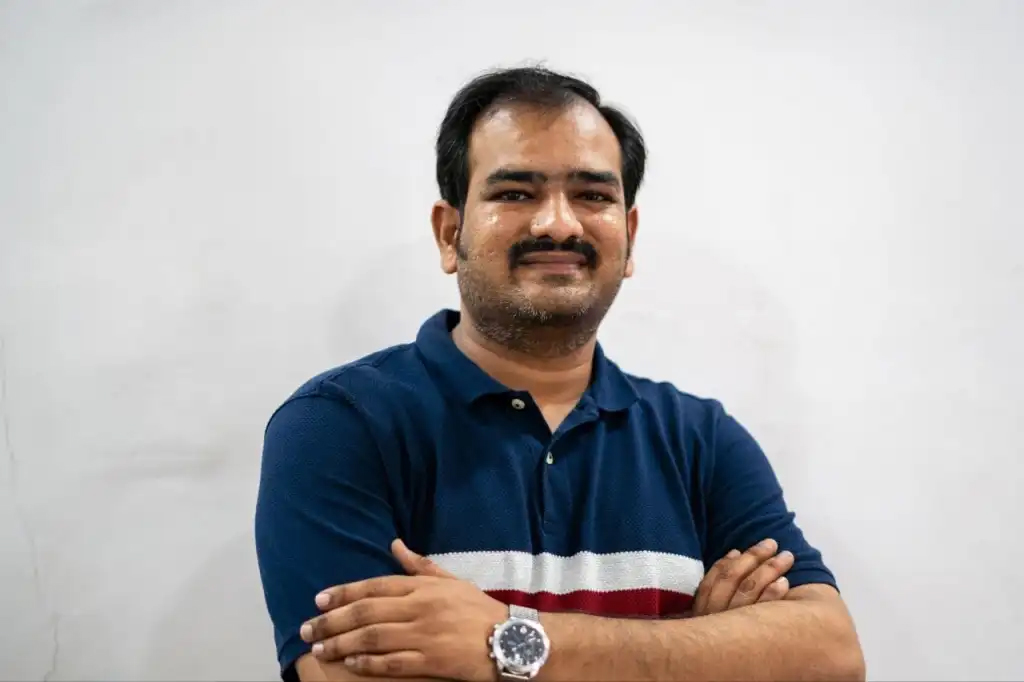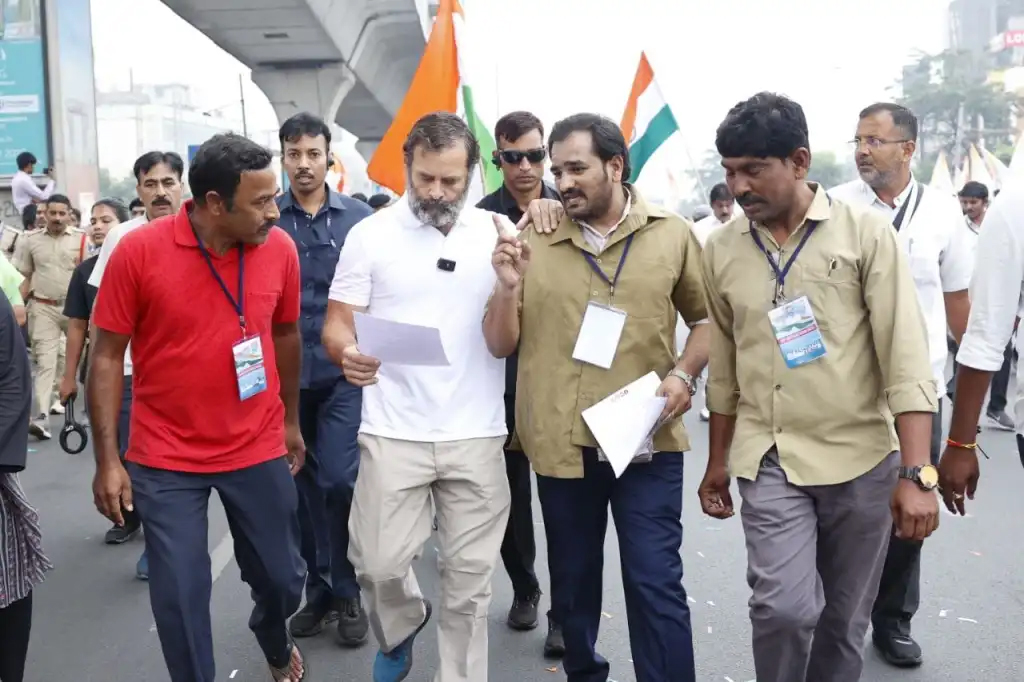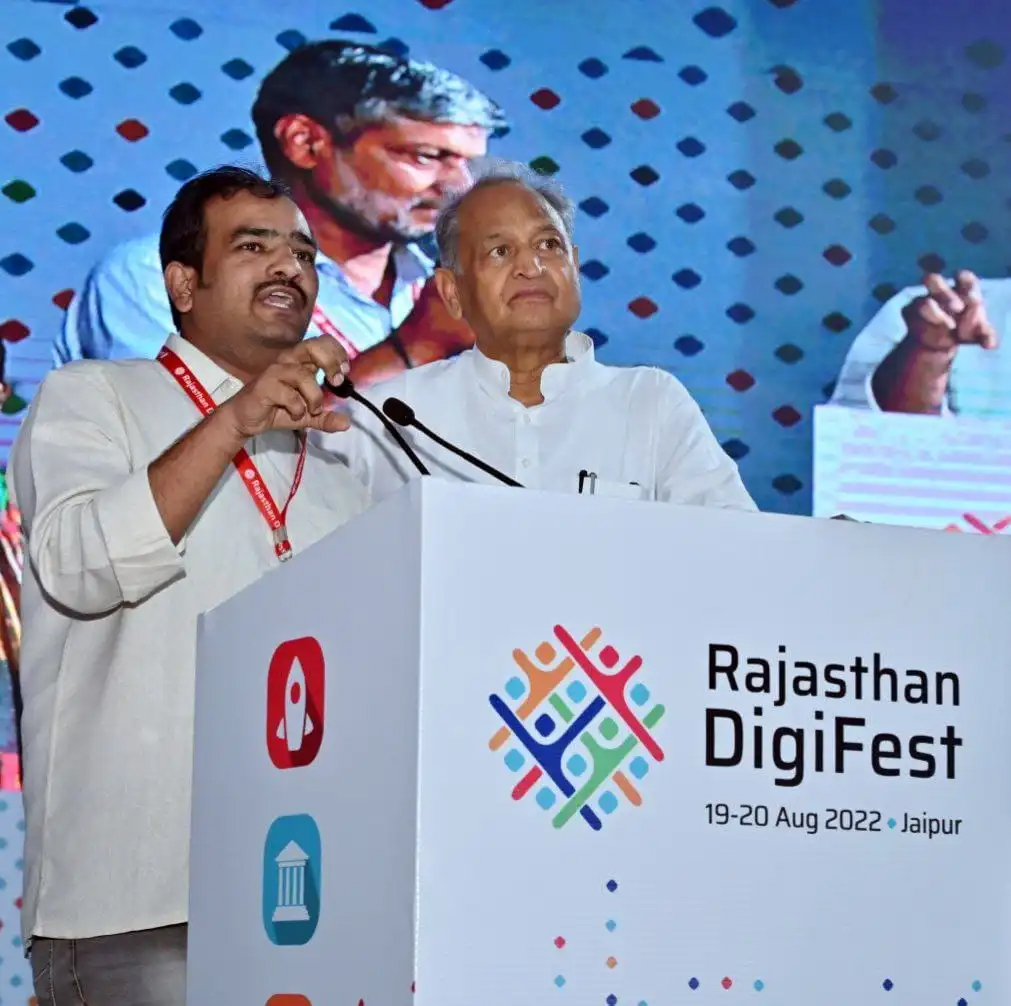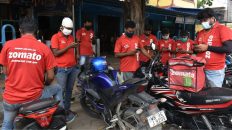Social Security For Them Is A Burning Issue
Organising Gig workers, Platform based workers is perhaps the most difficult task in the world. The governments influenced by multinational companies like Ola and Uber, the cash rich employers who keep bouncers to throw away protesting persons who are employees on our view but ‘contractors’ in the view of the aggregators, make it the most complicated task.
Seeing the degree of difficulty in organising the Gig and Platform based workers (GPW for short) Ralph Waldo Emerson who famously said “What is the hardest task in the world? To think!” would have revised his view.
I interviewed Mr. Shaik Salauddin whose contribution to the cause of Gig and Platform based workers is tremendous, and here is the full text of the interview:
Vivek: Hello Shaik Sahab, please tell me about yourself, I confess I know precious little, though I have heard a lot about your work.

Shaik Salauddin: I stay at Hyderabad. I am son of Shaik Abdul Nabi. We stay as a joint family; we are two brothers and stay together with our family. I have studied up to B Com (Computer Science).
Vivek: You have done stupendous work for organising Gig and Platform based workers (GPW), not just the drivers of Ola and Uber. How did this work begin?
Shaik Salauddin: In 2012 I was driving an Ambassador which was hired by the Government Department DRDA. I used to transport the officers of DRDA. Ambassador was an old car, so I bought Indica. It was used to transport a Government officer at Rangareddy. When he retired, I was unemployed for four months! But resumed driving my car. The government had two types of contracts. One category was that they would hire a vehicle with its driver, the other category was where they engaged only a driver, it was outsourced, which was because the then Chandrababu Naidu’s Government decided not to engage any drivers directly. No recruitment of drivers.
Vivek: How did you get involved and organise the GPW?
Shaik Salauddin: Well, a small group of Ola and Uber drivers would come to me and narrate their problems. But I said that I have to understand the problems first, then I could lead them to find a solution. After my work at the Government Department, I started working as a driver for Ola and Uber. At that juncture there were small groups and unions who could not resolve their issues with Ola and Uber. So, I launched Telangana Four-Wheeler Drivers Association (TGFWDA). That was in 2016. Then 14 associations and unions representing the GPW came together to form the Telangana State Taxi & Drivers’ joint Action Committee. I was elected as the Chairman of this Joint Action Committee.
Vivek: What was the context?
Shaik Salauddin: The aggregators had promised the moon! They said drivers will earn Rs 1.20L per month. In practice drivers were getting a good sum, though not Rs 1.20L. They were earning 40 to 50 thousand Rupees a month. That was not bad considering the income levels of people then. The number of drivers were not many, so the aggregators wanted more drivers. People moved from villages to Hyderabad to work as drivers. Villagers sold their tractors; some sold their jewellery in the hope of settling down in the Hyderabad city to work as drivers. Once you settle down in a city like Hyderabad, you do not go back to your village. But with more cars on street, Ola and Uber changed the rules of the game.
Vivek: What did they do?
Shaik Salauddin: Now the cars were too many. So, they did not keep their commitments. They reduced incentives. Later they stopped it altogether. They used to give referral bonus if you referred a driver, but then they stopped it too. Too many Ola and Uber cars were on the street, so individual business was low. Expenditure was exceeding the income for the drivers; it was impossible to make two ends meet.
Vivek: What is the situation now?
Shaik Salauddin: We make Rs 15 to 20 thousand a month. If you work at least sixteen hours a day you will make Rs 30 thousand a month.
Vivek: Rupees 15 thousand a month is like minimum wages for a worker.
Shaik Salauddin: True. But there is no bonus. And no social security! We protested; we launched agitations. Aggregators refused to meet us leave alone having any discussion. They had engaged bouncers who have beaten some of us who went to the offices of the aggregators. Police were used to book several criminal cases against us.
Vivek: That’s shocking. What did you do?
Shaik Salauddin: We realized that demonstrations against the aggregators will not take us any further. We had to change our strategy. We decided to take the fight to the Government instead of individual employers. It worked.
Vivek: Like what did you achieve?
Shaik Salauddin: In 2018 Mr. Nitin Gadkari heard us and promised to do something about our issues. He did two things: First, he made sure that Social Security Code contains provisions in respect of Social Security for Gig Workers and Platform Workers. It provides for social security schemes for GPW regarding life and disability cover, accident insurance, health and maternity benefits, old age protection etc. But it is yet to be brought in force. He also took another step; he introduced Motor Vehicle Aggregator Guidelines. (Read those here) But the guidelines are not enforced. We got them enforced in Kolkata and Karnataka, but court cases have been filed against these guidelines in these states.
Vivek: When did you come in contact with Mr Sangam Tripathy who is associated with International Transport Workers Federation?
Shaik Salauddin: In 2016. Through his guidance we connected with associations and unions working for GPW in 14 States. I am the founding member, National General Secretary of Indian Federation of App-based Transport workers (IFAT) which we established in 2019 bringing these associations and unions together. In Telangana other than TGFWDA we also launched Telangana Gig and Platforms Workers Union (TGPWU) in 2022 which is part of IFAT. We have over 10 thousand members and a thousand active members. (Note: The Federation and Union work towards the benefits of a wide variety of gig and platform workers, ranging from app-based taxi drivers or motorcycle riders for mobility platforms (Uber, Ola, Rapido), delivery agents for logistics and e-commerce platforms (Dunzo, Delhivery, Shadowfax, Amazon, Flipkart) and food delivery platforms (Zomato, Swiggy), and ‘freelance’ or ‘part-time’ workers for gig marketplace platforms (Urban Company, Housejoy))

Vivek: You have contributed to making various laws about Gig and platform-based workers. That is path breaking work. Tell me about it.
Shaik Salauddin: When Mr. Rahul Gandhi reached Hyderabad on Bharat Jodo Yatra, I met him. I spoke to him about the problems of the GPW. I spoke to him for thirty minutes and walked a good distance along with him. When he went to Rajasthan on his Yatra, he asked Mr Gehlot, the then Chief Minister, to make a suitable law to provide social security to the GPW. I assisted them in drafting THE RAJASTHAN PLATFORM BASED GIG WORKERS (REGISTRATION AND WELFARE) BILL, 2023. I remember a meeting with Mr Gehlot started at 9 pm – it was about this draft law- it ended at 12 midnight! There were important Government Officers present, and we discussed the draft threadbare.
Vivek: Wow! Amazing!! That is a pathbreaking piece of legislation. It’s first of its kind! And you were one of the architects of it!
Shaik Salauddin: When Mr. Rahul Gandhi was in Karnataka he spoke to me. He met Food Delivery workers over breakfast, and he heard them. He said he will get the Government to make law and also define minimum wages. In the next assembly session, the Karnataka Government declared that they would provide insurance cover of Rs 4 lakhs to the GPW. (Note: Karnataka Government is expected to table the Gig and Platform Workers’ bill in July 2024)
Vivek: Oh, wow! This is a great achievement.

Shaik Salauddin: When Mr. Rahul Gandhi was in Hyderabad, I met him with drivers and delivery workers. We discussed making law for social security, welfare board etc. Mr. Ravanth Reddy also heard me. He declared insurance cover of Rs 5 lakhs for the GPW. The insurance policies in Karnataka and Telangana are implemented. The policies for GPW in Telangana are ready and those will hopefully get approval. Even minimum wages will be stipulated. For hospitalization an insurance cover of Rs 10 L is approved under the Arogya Sri Scheme. (NOTE: The website of Vikaspedia ArogyaSri page does not support this claim. Perhaps it is not yet implemented.)
Vivek: When it comes to the cess or fee for the welfare board of GPW, the three laws (Rajasthan, Karnataka and the Social Security Code) specify different ways. Social Security code stipulates payment on the basis of annual turnover of the aggregator, Karnataka Bill specifies on the basis of each transaction or on the annual state specific turnover and Rajasthan specifies the cess to be paid on the basis of ‘the value of each transaction related to platform-based worker.’ What is your stance on this matter?
Shaik Salauddin: We want it exclusively on the basis of the transaction – the amount paid by a customer to the aggregator. Not on the annual turnover. When it comes to annual turnover, there is no transparency of accounting done by the aggregators. They also create multiple companies like Ola has Ola Mobility Institute, Ola Electric Mobility which also manufactures electric two wheelers which is Ola Bikes. Agreegators can do creative accounting to reduce liability, but things will be transparent only if the fee or cess is based on each transaction done with a customer. All data will be available about customer transactions.
Vivek: Thanks a million for sharing the details of your path breaking work and your insights. I wish you success ahead, it is a long road, but under your leadership it will be a grand success. My best wishes.
Readers may also like to refer: ‘Gig Workers What The Report Says’ , ‘Prisoners on Wheels Report’ , and Who worries About Gig Workers .
Article originally published at vivek’s world – https://vivekvsp.com/2024/07/leading-the-gig-workers/
Stay connected with us on social media platforms for instant updates click here to join our LinkedIn, Twitter & Facebook

























